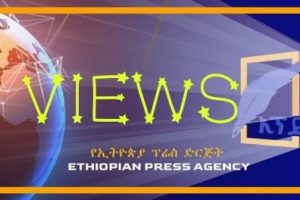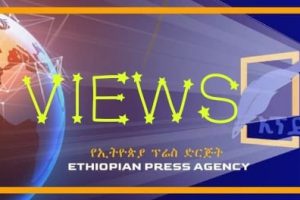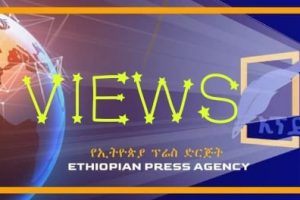Almost four years have elapsed since the signing of the Tripartite Agreement between Ethiopia, Sudan and Egypt on the construction of GERD. In the meantime, despite the maneuvers and diplomatic machinations that Egypt has conducted to prevent Ethiopia from obtaining financial resources from abroad, the peoples and government of Ethiopia have continued to build the dam based on their own resources reaching to more than 74 percent at current pace. Despite the nationwide battle to curb the spread of COVID-19, Ethiopians have continued to contribute their share in completing the construction of the dam and the startup in on filling program.
When Egypt constructed the AHD, no consultations was made with Ethiopia and have never suspected that the country would someday build her own dam as the consecutive leadership of the country never doubted that the 1929 and 1959 agreements that have never involved Ethiopia would ever be subject to scrutiny.
The tripartite negotiations were deliberately dragged as some kind of psychological tactics to add more fuel on some internal conflicts that flared up in some parts of Ethiopia and thus hinder a general national consensus on the importance of the construction of GERD.
Through time however, the reverse was proved in contradistinction to the expectations of Egypt. The propaganda machinery carefully orchestrated to frustrate the final completion of the dam, invitations of a third party and appeal to the UNSC enforcing an irrational resolution by the League of Arab Nations to externalize and over politicize the issue failed to bring the desired results and Egypt was put on afterthoughts to come to the negotiating table.
The entire arguments forwarded by Egypt who has a huge amount of underground water resources that can last for 500 years hinges around the previous colonial era agreements that totally disregarded Ethiopia’s right to use the waters of the Blue Nile.
The essence of the use of Nile waters emanates from major international laws and conventions on utilization of trans-boundary Rivers. The cardinal idea of joint development and utilization of the waters of the Nile on the basis of NBI is not entirely about politics but indeed it is all about the potential desire of country to engage in poverty reduction through equitable distribution of water resources. Ethiopia has never politicized on the issue but demanded the use of the water resources of the Nile for common development of the peoples of upper and lower riparian countries.
I personally believe that attempting to use the construction and filling of GERD as a window dressing for popular internal politics would certainly do a disservice to the very political objectives of attempting to build a wrong consensus through misinformation and obstruction or deliberate sidetracking of the real issue at hand.
It is possible that other countries can help to boost the speed of the negotiations but in practice the mediation process turned out to be preparing an imbalanced blue print to be dictated on Ethiopia. Ethiopia accepted the role of the US and the WB in good faith as observers to the negotiations and not to directly involve in dictating the technical processes involving the GERD. Now according to a statement issued by the US Treasury Department the filling of GERD “should not take place without an agreement.” As if the three countries have not agreed on several subsidiary issues.
The whole world witnesses the entire positive role Ethiopia is playing in making the GERD a hub for generating a renewable energy resource for the three countries and other countries in Eastern Africa. Ethiopia started this project in a combination of meeting its energy needs.
Ethiopia’s stance on GERD has always been positive and was initiated as part of a regional economic cooperation and integration and as a source of energy supply which would ultimately boost the implementation of the Continental Free Trade Area by supplying cheap and clean energy.
This country believes in providing African solution to African problems. It would be enough to mention how Prime Minister Dr. Abiy Ahmed has labored to seek a sustained solution to the crisis that flared up in the Republic of Sudan. GERD is indeed a historic and practical contribution made by Ethiopia towards Africa’s sustainable development program as indicated in Agenda 2063.
GERD should not be perceived through a colonial mentality but as an important milestone for promoting Pan Africanism for promoting mutually beneficial program that would help the three countries to engage in joint development programs for the benefit of the three countries.
From policy perspectives, Sudan and Egypt need to focus on accenting the positive and constructive advantages of equitable use of GERD instead of employing delaying tactics that could never deter Ethiopia from filling the dam. The recent expression of the two countries to go back to negotiating table is good news but these negotiations need to be conducted in good faith and sincerity.
The Ethiopian herald June 10,2020
BY SOLOMON DIBABA





